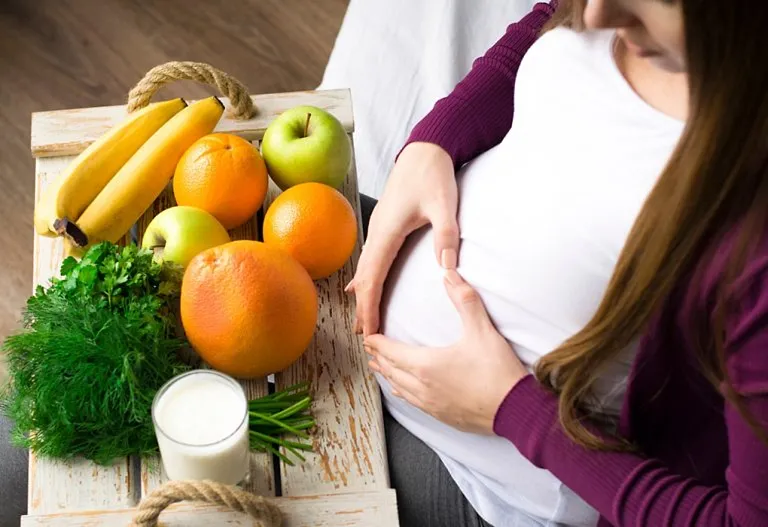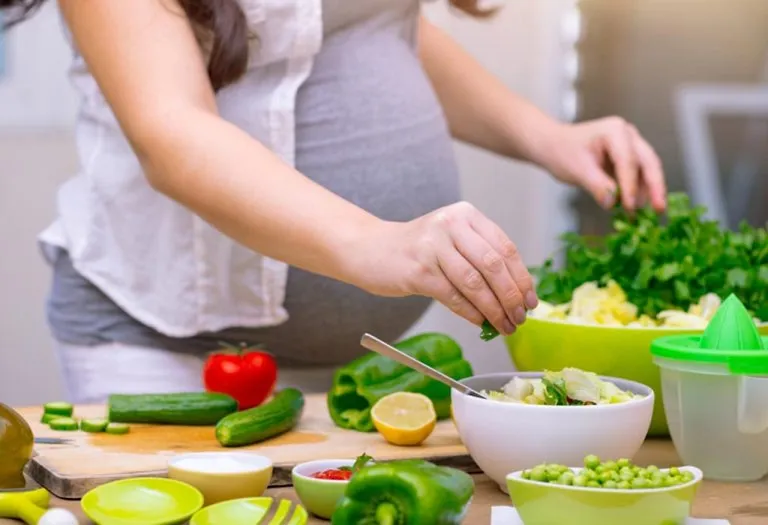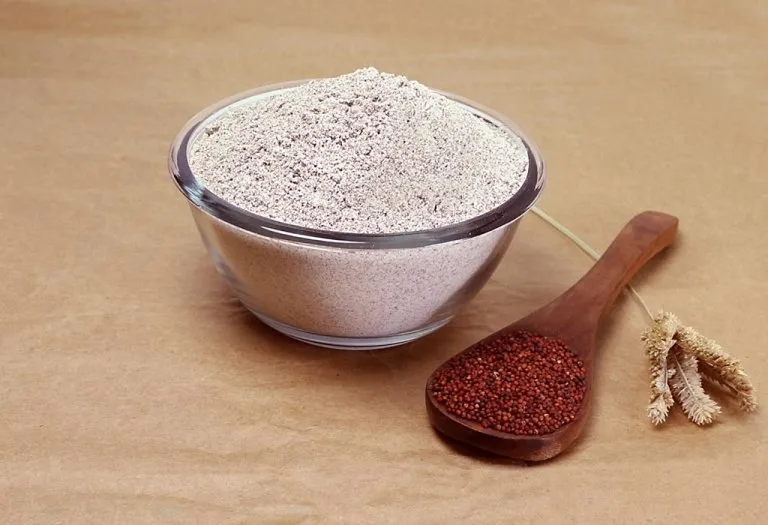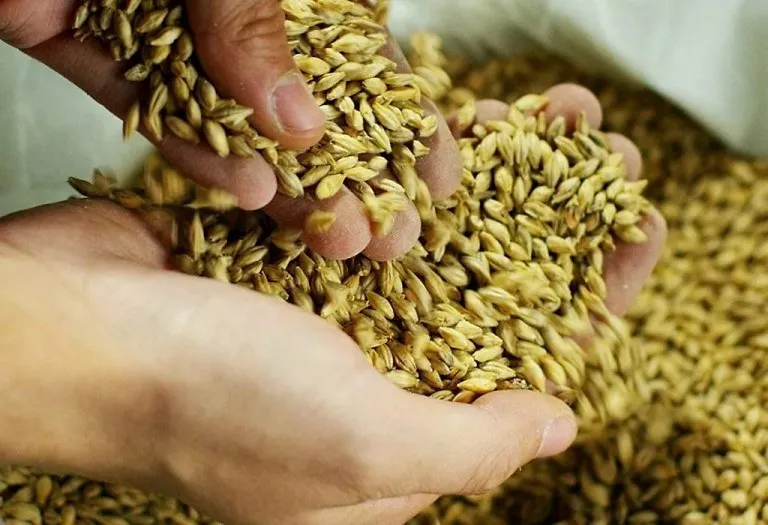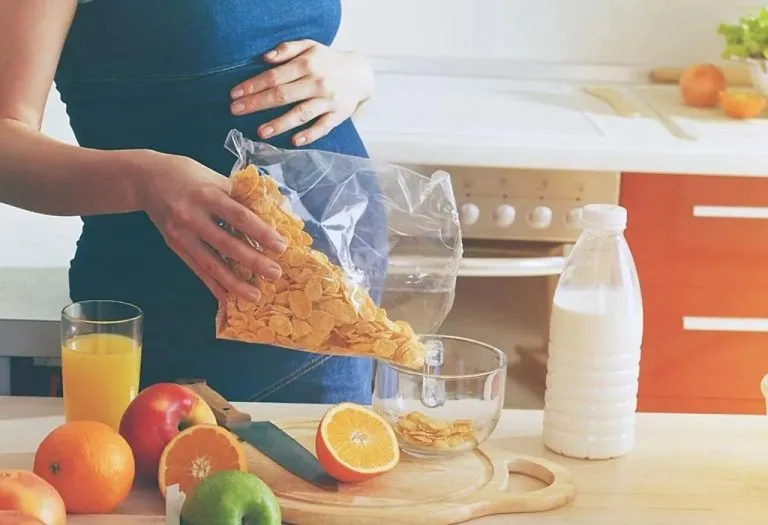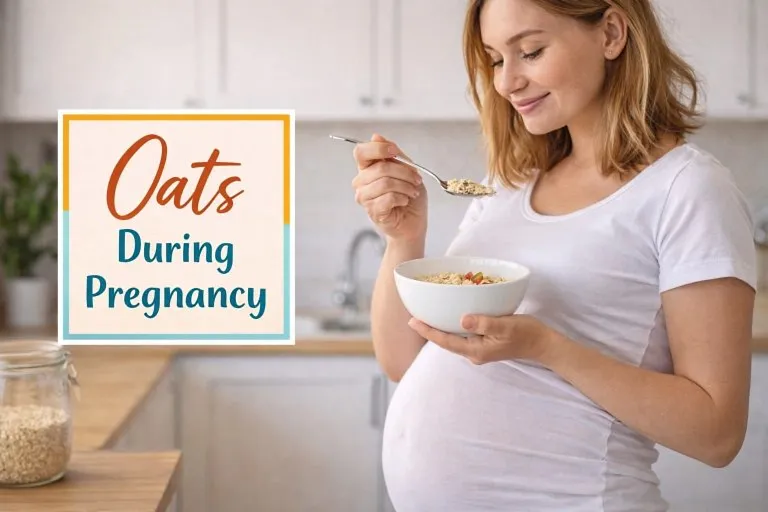Drinking Green Tea During Pregnancy – Is It Safe?
Is green tea safe in pregnancy? Here’s what to know about caffeine, benefits, and risks.

- Can You Drink Green Tea During Pregnancy?
- Does Green Tea Increase the Chances of Getting Pregnant?
- Benefits of Green Tea During Pregnancy
- Risks of Having Green Tea While Pregnant
- How Much Green Tea to Consume During Pregnancy
- What Herbal Teas Are Safe to Have?
- Tips While Drinking Green Tea While Pregnant
- FAQs
During pregnancy, doctors recommend that women drink enough water and other fluids that are beneficial. Water helps in the proper formation of the all-important placenta and amniotic fluid, for which pregnant women should drink at least 8 to 12 glasses of water every day. At the same time, avoiding caffeinated drinks like coffee is equally important since caffeine leads to dehydration and could negate the positive effects of drinking water.
This is also why many expectant mothers look for gentler alternatives, and green tea often comes to mind. Made from the leaves of the Camellia sinensis plant, green tea has a mild, earthy flavour and is appreciated for its rich antioxidant content. But even though it’s considered a healthy beverage, there are still a few things you should know before pouring yourself a cup. Let’s take a closer look at what’s safe, what’s not, and how to enjoy green tea in pregnancy without worry.
Can You Drink Green Tea During Pregnancy?
If you love green tea, you will most likely ask, “is green tea good in pregnancy?” Well, just like any food item or beverage, if consumed beyond the recommended levels, green tea can also prove to be harmful. If you practice moderation, green tea is a fine stimulant when you are pregnant. Two cups of green tea a day is considered safe when you are expecting.
Is green tea dangerous for pregnant women? In some cases. Green tea has the potential to reduce the level of folic acid or folate in your body, and hence should be avoided in the first trimester. Even during the second and third trimesters, the intake of green tea should not exceed two cups in a day, so that you and your baby are safe (1).
Note: Remember that green tea is not a herbal tea and does contain caffeine, though in much smaller amounts than coffee. An 8-ounce cup of green tea (236 ml) typically contains about 25-45 mg of caffeine, depending on the brewing strength, while the same amount of coffee can contain 95-200 mg of caffeine. Thus, pregnant women must consume green tea in moderate amounts.
Does Green Tea Increase the Chances of Getting Pregnant?

Is green tea good for fertility? Numerous men and women who are keen to start a family ask this question to their doctor, and the answer is an emphatic yes. Green tea contains important compounds that have fertility-boosting properties:
- Vitamin C: Due to its ability to curtail the oxidative harm to the reproductive cells, vitamin C plays a vital role in reigning in the harmful free radicals in the body (2). Many clinical studies have been conducted in this area. Does green tea help you get pregnant? Well, the results have shown that the chances improve dramatically.
- Antioxidants: Green tea extracts produce antioxidants in abundance. Their primary purpose is to prevent the oxidative destruction of the reproductive tract cells and to destroy free radicals (3). This plays a positive role in preparing your body for pregnancy.
- Minerals: Green tea leaves are packed with essential minerals like zinc, manganese, chromium, and selenium in varying quantities. In females, these minerals help in improving egg viability, and in males, they enhance sperm count and motility. As a to-be-mother or an aspiring one, you will have many doubts like, “Can green tea prevent pregnancy?” – this should put them to rest.
So will green tea help to get pregnant? Surely! The combined and synergistic effects of the natural and organic compounds in green tea improve the probability of getting pregnant, along with providing many other health benefits.
Benefits of Green Tea During Pregnancy
Is green tea healthy for pregnancy? As mentioned above, it is – there are loads of benefits that a cup of green tea can impart during pregnancy, and drinking a cup or two in a day is considered safe. Here are the prominent benefits of green tea for pregnant ladies:
- A serious complication known as preeclampsia can develop in pregnant women who suffer from hypertension, and this can be dangerous for the pregnancy. Green tea can regulate blood pressure efficiently, which is beneficial for pregnant women.
- Green tea is a powerful source of antioxidants that prevent free radicals from destroying vital cells in the body. Diseases like cancer, high blood pressure, heart disease, etc., can be averted by adding antioxidants to your diet (4).
- The antioxidants in green tea are useful in speeding up the body’s metabolism rate which can help in countering pregnancy-related mood swings (5). According to clinical studies, green tea can enhance regulatory T-cells in the body that are responsible for keeping your immune system robust and strong. This way, you can fight off illnesses during pregnancy.
- Indigestion and stomach ailments are common during pregnancy. Green tea can help by easing your digestion.
- Studies have also indicated that green tea can promote oral health and enhance bone strength (6). Pregnant women may suffer from gingivitis due to fluctuating hormone levels. Green tea can ease this.
Risks of Having Green Tea While Pregnant
There are a few green tea side-effects during pregnancy, and you should be aware of them before consuming it. It is always better to consult your doctor or gynaecologist, especially if you like green tea and would want to continue drinking it during pregnancy.
- Drinking green tea while pregnant can hamper the absorption of iron by the blood cells. Iron is needed for the production of haemoglobin. This can become one of the reasons for gestational anaemia, where the nutrient and oxygen intake of the body get hampered (7).
- Folic acid plays a critical role in averting neural defects in the baby, and hence, its intake during pregnancy is necessary. Overconsumption of green tea hampers the absorption process of folic acid, which could lead to a congenital defect of the spinal cord known as spina bifida. Folic acid is essential for your body during the first 12 weeks of the pregnancy, and hence, green tea should be avoided during this period (8).
How Much Green Tea to Consume During Pregnancy
Pregnant women are often plagued by worrying thoughts about eating and drinking their regular foods. During pregnancy, it is best to limit the consumption of green tea and other caffeine-based drinks to less than 200 mg per day, which can be roughly translated to about two cups every day. Apart from green tea, make sure you add up your daily intake of chocolate, soft drinks, coffee or energy drinks which should remain well below 200 mg (9).
What Herbal Teas Are Safe to Have?
Herbal teas are made from various parts of a plant rather than the tea plant itself, and these parts include roots, flowers, seeds, fruits, and leaves. They help hydrate the body. Rooibos tea is good for pregnant women due to its antioxidant properties and it is caffeine-free too. Herbal teas like ginger and mint help in reducing morning sickness symptoms, while chamomile can ensure you get a good night’s sleep by acting on insomnia. Red raspberry leaf tea promotes better labour contractions (10). Discuss with your doctor before consuming any herbal tea to ascertain its safety for you and your baby.
Tips While Drinking Green Tea While Pregnant
When it comes to green tea and pregnancy, a little guidance can help you enjoy your favourite drink without any worry. Here are a few tips to remember when consuming green tea (or any caffeinated beverage) during pregnancy:
- Limit green tea to 1-2 cups a day to keep caffeine intake safe.
- Avoid drinking it on an empty stomach to prevent nausea or acidity.
- Keep at least a 2-hour gap between your green tea and prenatal vitamins to avoid interference with iron and folate absorption.
- Choose high-quality, fresh, or organic tea to reduce exposure to additives or pesticides.
- Avoid bottled or ready-to-drink green tea, as it often contains added sugar or higher caffeine.
- Pay attention to how your body reacts and reduce or stop drinking it if it causes discomfort.
FAQs
1. Can I drink green tea during pregnancy first trimester?
You can, but the first trimester is when folate is most crucial for fetal development. Since green tea may slightly reduce folate absorption, keeping intake low or spacing it away from prenatal vitamins is a good idea.
2. Is decaf green tea safe during pregnancy?
Yes, decaf green tea during pregnancy is a great alternative when you want to avoid caffeine while still enjoying antioxidants. Just be sure to choose a reputable brand with minimal chemical processing.
It’s always best to listen to your own body, as your daily cup of green tea may affect you in ways—positive or negative—that only you can truly notice. Most experts agree that green tea is safe during pregnancy when enjoyed in moderation and with a bit of mindfulness. If it’s causing sleepless nights, upsetting your stomach, affecting your appetite, or leaving you feeling on edge, it’s a good idea to talk to your doctor about these concerns. And if you choose to drink green tea while expecting, be sure to follow the precautions and guidelines above to make sure it remains a supportive and safe part of your routine during this sensitive time.
Also Read:
Black Tea while Pregnant
Drinking Iced Tea During Pregnancy
Consuming Chamomile Tea in Pregnancy
Is it Safe to Drink Ginger Tea in Pregnancy
Herbal Teas During Pregnancy – Which are Safe?
Is Drinking Chai/Tea Okay During Pregnancy?
Was This Article Helpful?
Parenting is a huge responsibility, for you as a caregiver, but also for us as a parenting content platform. We understand that and take our responsibility of creating credible content seriously. FirstCry Parenting articles are written and published only after extensive research using factually sound references to deliver quality content that is accurate, validated by experts, and completely reliable. To understand how we go about creating content that is credible, read our editorial policy here.
1. Boston University – Caffeine and Pregnancy
2. National Institutes of Health – Vitamin C
3. Harvard Health Publishing – Understanding antioxidants
4. Cleveland Clinic – How Green Tea Can Benefit Your Health
6. PubMed Central – Green Tea: Current Knowledge and Issues
8. PubMed Central – Maternal Tea Consumption during Early Pregnancy and the Risk of Spina Bifida
9. March of Dimes – Caffeine in pregnancy
10. PubMed Central – Frequently Used Herbal Teas During Pregnancy – Short Update








